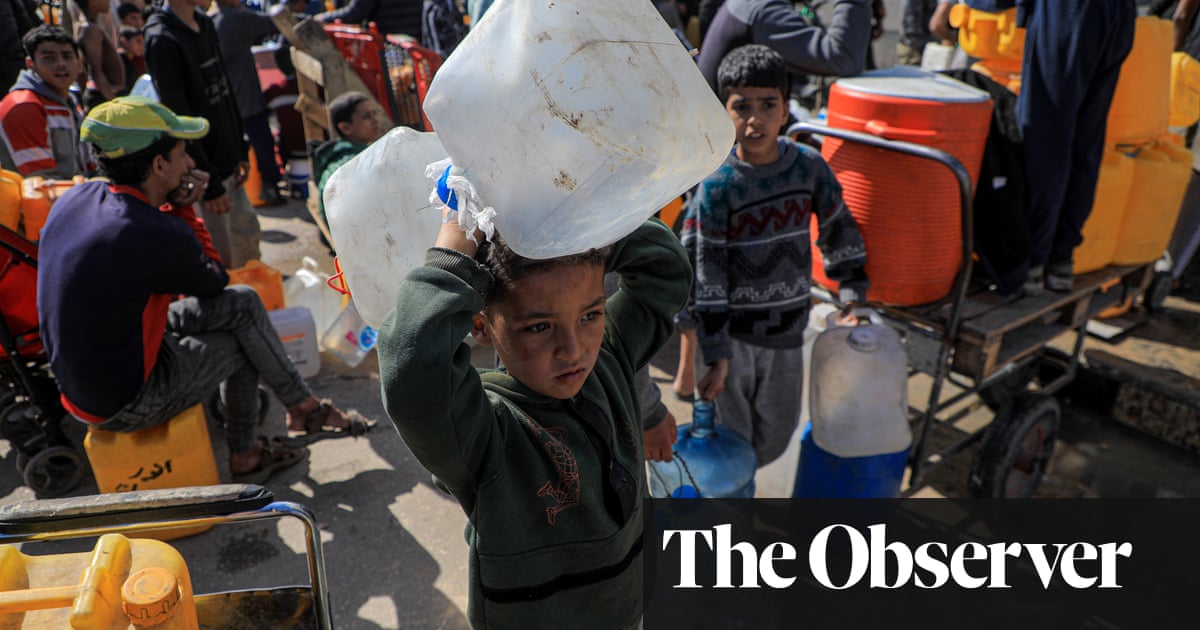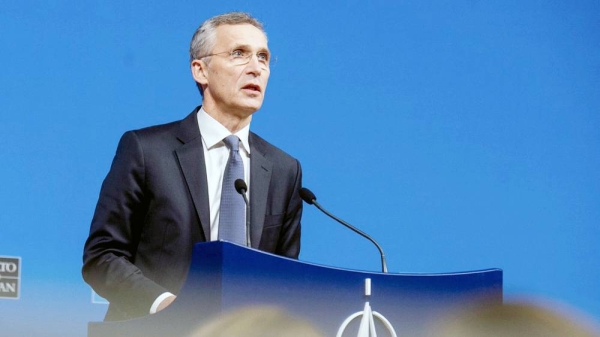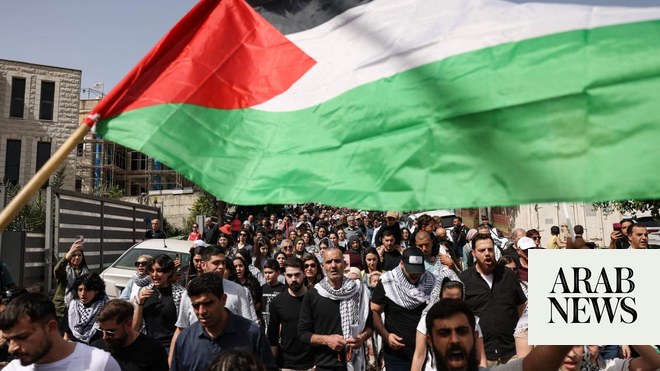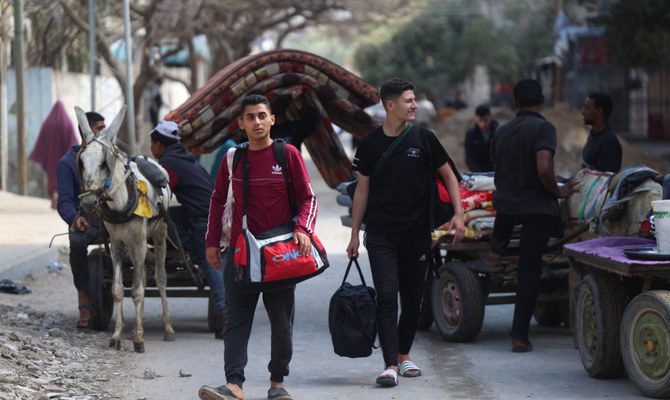
Six months ago, Hussein al-Auda had a good job with a big international non-governmental organisation (NGO), a new baby, two curious and clever older children and a small house in Gaza City.
Now the 37-year-old is alone in Rafah, Gaza’s southernmost city, living in a half-derelict block of flats, looking after his elderly parents.
He spent his life savings to get his wife and children out of the territory to Egypt and is living on tinned beans handed out by the same, now struggling NGO that he worked for. His car and home were destroyed in an airstrike and another attack killed a dozen members of his extended family.
Despite the possibility that a UN resolution calling for an end to hostilities may eventually be passed and with indirect talks in Qatar about a ceasefire between Hamas and Israel continuing, Auda does not think any real peace will come soon.
“Everything has an end, but [at] its end, which is far away, a new war will begin,” he told the Observer.
Among Israelis, Palestinians and across the Middle East, a slow and painful realisation is gaining ground. Almost six months after the surprise attacks by Hamas that triggered the war in Gaza, it is now becoming clear that there will be no “day after”.
Many are now convinced there will be no clean end to the hostilities that initially killed more than 1,100 Israelis, mostly civilians, in Hamas’s raids into Israel in October, then at least 32,000 in Israel’s ensuing military offensive.
Moves to bring a ceasefire may lead to a momentary pause before violence and the acute humanitarian crisis in Gaza continue, albeit at a perhaps lower rhythm and intensity, possibly for years to come.
The truce being discussed in Doha would last for six weeks. Hamas has dropped its insistence on a definite agreement to progress through phases to a permanent ceasefire.
This would have allowed the Islamist militants to remain in control of a portion of Gaza for the foreseeable future and so declare some kind of a victory on the basis that, if a conventional army needs to win, an insurgent force needs only to survive.
Benjamin Netanyahu, Israel’s prime minister, has told his negotiators that only a six-week initial pause is acceptable and insisted on Friday that Hamas will only be defeated once Israeli troops enter Rafah, where a million displaced people including Auda are sheltering, in order to destroy the organisation’s last remaining coherent armed force and find its leaders.
If the US would not support this assault, Israel would do it alone, Netanyahu said. Many fear that this is not a sound basis for a permanent end to the conflict.
“I hope we won’t be in a vicious cycle of attacks, then [Hamas] regenerates, then more attacks, or it will be a never-ending story,” said Neomi Neumann, a visiting fellow at the Washington Institute, who formerly served as head of the research unit at Israel’s security service, Shin Bet.
Nor, many aid workers on the ground in the territory now believe, will there be any sudden restoration of a semblance of order in Gaza, even if there is a ceasefire that holds.
Aid would not flood into the territory, but a sputtering spigot of humanitarian assistance may just deliver enough to keep most, but probably not all, people from starving.
There will be no immediate start of a phase of reconstruction of the cities of Gaza either – just an end to their systematic demolition.
The sheer scale of the humanitarian need is yet to be realised, many say. James Elder, spokesperson for Unicef, last week described the massive overcrowding on Gaza’s coastal road – one of the few existing thoroughfares in the territory usable by lorries and other vehicles – where hundreds of thousands of people “are sleeping in the streets, on the beach, on the sand behind the beach, in any available space”.
In northern Gaza, hundreds of thousands are surviving with inadequate food supplies amid an almost total breakdown of civil order and renewed combat. In al-Mawasi, a strip of sandy coast west of Rafah where there is no water, little food and no sanitation, new encampments shelter an unknown number.
They are there because al-Mawasi has two big advantages: its fine soil makes it impossible to dig the tunnels that Hamas has built underneath the rest of Gaza and there are no high-rise buildings. Both factors make the area safer, say those who have sought out the zone.
There are also no underground targets that may attract an Israeli airstrike, and there are no neighbours above or below whose identity – unknown to even those who live so close because of the chaos of mass displacement – may do the same.
A dozen different scenarios have been floated for the administration of the territory and the lives of its 2.3 million shattered, hungry, traumatised inhabitants. None are convincing, analysts say.
These range from the involvement of the Palestinian Authority, which is being pushed by the US but rejected by Israel, to some kind of local government by clans and powerbrokers in Gaza, which is favoured by Israel but deemed utterly unworkable by almost every observer.
Few believe that any kind of multinational peacekeeping force can be set up, or that the Gulf states will put up the vast sums necessary for reconstruction. The result is a slow slide to the default option, where the men who can muster the most coercive force take control.
In Israel, the idea that Israeli officials should run Gaza directly is gathering momentum.
“The best plan for the day after is … [Israeli] boots on the ground and [an Israeli] civil administration that operates in the Gaza Strip,” wrote commentator Nadav Shragai in Israel Hayom, a newspaper close to the government. “Anything else would be temporary and short-lived at best; in the worst case scenario, it would be a sham and conceit from the get-go.”
Many who have watched the war evolve over half a year believe that any discussions about a new post-conflict era are misleading and misplaced.
“The ‘what we should do on the day after’ conversation feels surreal,” said one veteran aid official based in Washington. “It is based on assumptions that this thing is going to be over soon. I worry that it will be going on like this for a very long time.”
Relatives of hostages held in Gaza know time is running out and are pressing for a pause to allow their release. After a break in hostilities, Palestinians and Israelis could think more clearly about future options, some said.
Gil Dickmann, a psychology student in Tel Aviv whose 39-year-old cousin Carmel Gat was abducted by Hamas and is still being held in Gaza, believes that the “total victory” repeatedly promised Israelis by Netanyahu is an illusion.
“It won’t end that way. This is a very different war … But it is not a never-ending conflict. We have been living this my whole life as a 31-year-old Israeli … We saw on 7 October that you can’t manage a conflict – the conflict manages you,” said Dickmann, who is calling for a pause now to allow his cousin and all the other hostages to be freed.
“It will take time to end a hundred years conflict, but it can be ended.”












